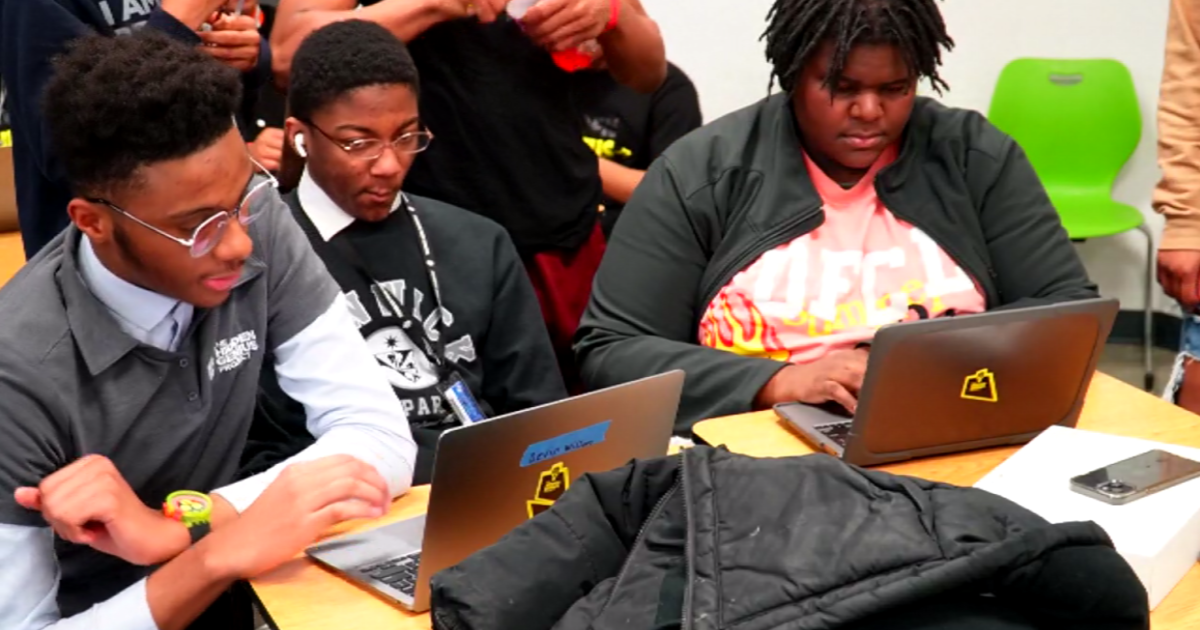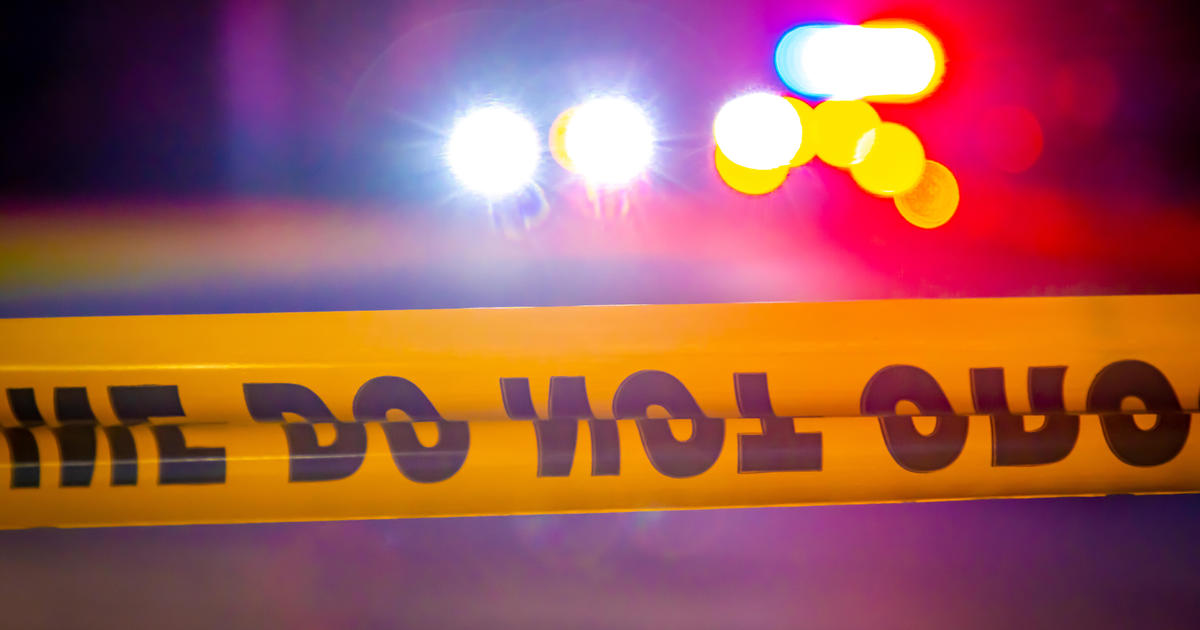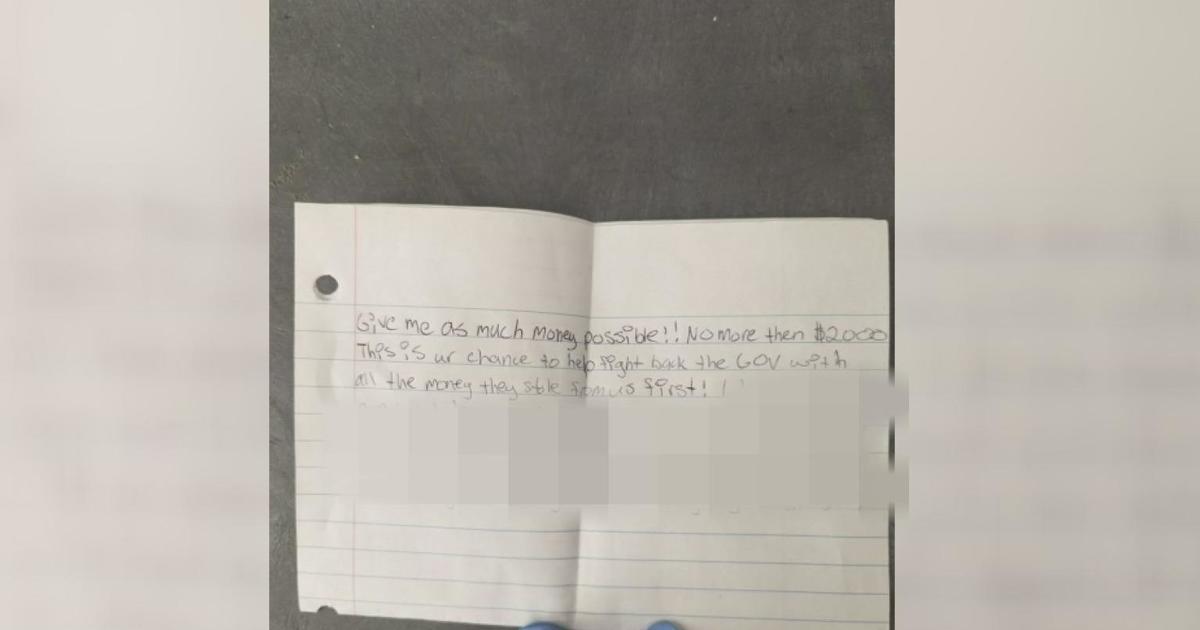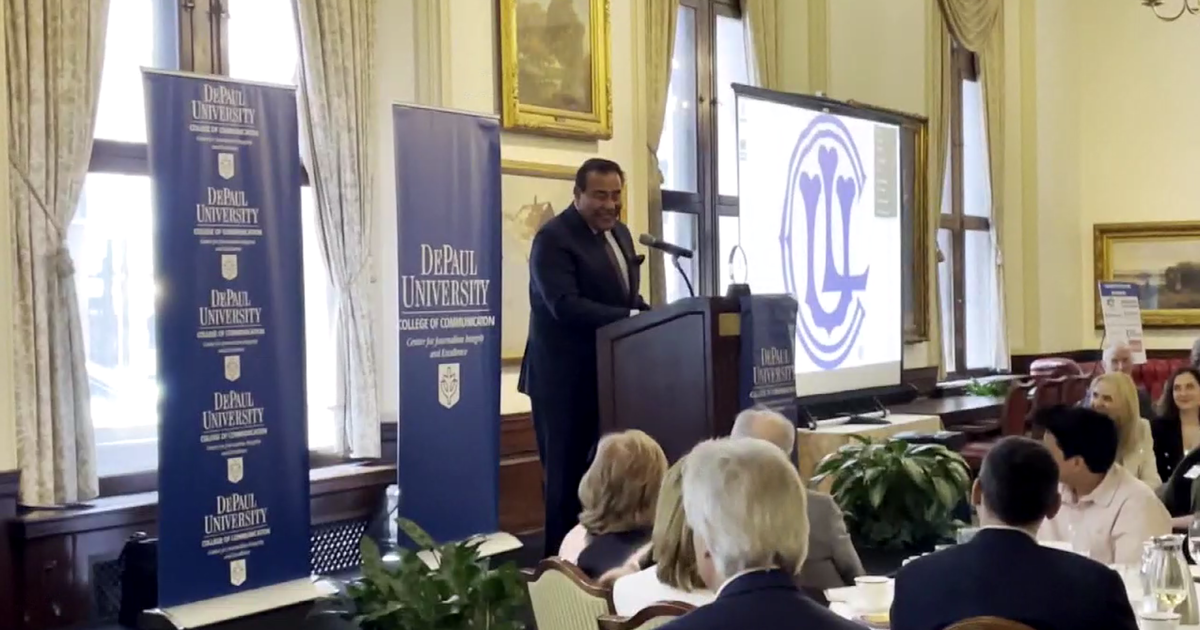Gov. Pritzker On Federal COVID-19 Response: States Forced To Play 'Sick' Hunger Games Gameshow
CHICAGO (CBS) -- Touting his response to the coronavirus, Illinois' governor had sharp words for the federal government in its "failure" to hit the ground running and help states grapple with COVID-19 crisis.
Illinois Governor JB Pritzker was part of a virtual hearing to address the Congressional Committee on Homeland Security's "Examining the National Response to the Worsening Coronavirus Pandemic."
Pritzker criticized the government for what he said how little it did as the pandemic unfolded.
"When it became clear that COVID-19 was not a phenomenon limited to Asia...a global pandemic requires a national response. That's not what happened," Pritzker said. "The federal government wasn't leading. We were."
The governor was joined by leaders from around the country, including the Mayor of Tupelo, Mississippi, the executive director of a Texas public health department and the director of the Alabama Emergency Management Agency.
"We were among the first states to close nursing homes to visitors and do wellness checks in consultation with local officials. I shut down St. Patrick's Day celebrations and then closed bars and restaurants, and then schools were closed. We were the second state in the nation to issue a stay-at-home order," the governor said.
Pritzker said because of proactive measures in Illinois, the percentage of COVID-19 cases has decreased. But it is still a threat to public health in the state.
"Our COVID related deaths per day are down 85% from eight weeks ago, even as our testing continues to grow to over 30,000 tests per day now," Pritzker said.
In his opening remarks, Pritzker described the early days of the pandemic in Illinois, as state leaders frantically scoured the country and international sources looking for much needed PPE and how to make decisions on where the resources would go.
"A choice between bad and worse was muddled further by the White House's broken promises on testing supplies and PPE deliveries. We were in a bidding war for life-saving supplies against each other and against our international allies. We're paying $5.00 for masks that should have cost 85 cents," Pritzker said.
"In the midst of a global pandemic states were forced to play some sort of sick "Hunger Games" game show to save the lives of our people. Let me be clear, this is not a reality TV show. There are real things that are happening in the United States," said the governor.
"It's the federal government's job to make sure that a nurse being properly equipped in Peoria, Illinois, doesn't come at the cost of a doctor being ready for work in San Antonio, Texas with no national plan to acquire PPE or testing supplies," Pritzker said.
The governor thanked the CDC and FEMA for assistance throughout the pandemic, but Pritzker added he would like to see a "coordinated national strategy" for containment to include more testing and subsequent contact tracing.
"We need a national masking mandate. We instituted ours in Illinois on May, 1, one first in the nation. And it aligns with our most significant downward shifts in our infection rate. It's not too late for the federal government to make an impact," Pritzker said.
Pritzker was asked by the committee why COVID-19 had hit minority communities the hardest. The governor said the problems leading to high infection rates in Black and Latinx communities arrived before COVID-19.
"This is a result of, frankly, hundreds of years of failure to invest in basic health care basic needs. Because we haven't invested in those communities and so people suffer from the corona morbidities more in communities where there's more poverty," Pritzker said.
When asked if the federal government's "ineffective" national strategy resulted in thousands of deaths, Pritzker said no doubt about it.
"Thousands and thousands of lives have been lost. Tens of thousands across the nation as a result of the inaction the late action taken by the Trump administration," said the governor.
Pritzker added that the much discussed "airbridge" to bring supplies to states across the country didn't work the way it should have.
"I think the airbridge was an utter and complete failure in the sense that most of the supplies needed to go to areas where there's a great need and not necessarily to where some private or profit distributor thinks they need to feed a pre existing customer," Pritzker said, adding that he had experiences from suppliers who wanted more money for PPE.
"I can remember one in particular, who basically said to me 'I will allow you to acquire this amount of these PPE items or this equipment if you will up your order by X amount so that you're greater than this other customer who is promising to acquire, you know, a certain amount.' So essentially pitting me against another customer in an environment in which we have a pandemic, people are dying," Pritzker said.
Representative Dan Bishop (R-NC) asked Governor Pritzker if countries like Spain and Italy also had failed responses from their governments as COVID-19 cases skyrocketed in Europe. The governor said it wasn't about other countries and that he had to deal with this federal government.
"What I can tell you is that we were a lot of promises were made to the states, including us, that were not delivered upon. And that's what I was really referring to. I'm not comparing us to other nations. I'm just saying the federal government, the White House in particular, and made promises about the delivery of PPE, about testing supplies."
When Rep. Bishop asked why Illinois didn't have a larger stockpile of PPE, Pritzker said he got what he inherited from the previous administration.
"It wasn't really a criticism that that we didn't have the stockpile at the federal level, it was that we could immediately have invoked the Defense Production Act in order to help us rebuild those stockpiles," Pritzker said. "We weren't getting that PPE from the federal government and what we needed was the federal government to organize the market to direct those resources so that we could use them to save lives."
Along with how COVID-19 has affected everything from state budgets to healthcare options, the discussion on whether to reopen schools in the fall was brought up.
President Trump said he wants schools to start on time in the fall. Chicago Mayor Lori Lightfoot said that's not his call to make.
"This really has to be a localized decision. Candidly, I don't put much weight into what President Trump says, particularly given his lack of leadership over the course of this pandemic, but making those kinds of decisions has to lie with the local school district, because we and they are the ones that know what's actually happening in local circumstances," Lightfoot said Wednesday morning.
When asked by U.S. Representative Lauren Underwood (D-IL) about what the federal government help with the reopening of schools, Pritzker said he'd like guidance, specifically from the Centers for Disease Control and Prevention (CDC) but said the agency is being muzzled by the Trump administration.
"There are a lot of terrific epidemiologists and expertise that exists at the CDC but often what we found is either they put out guidance and then the White House tells them no we're pulling it back, or they're beginning to put out guidance and someone says, 'you're not allowed to talk,'" Pritzker said. "I was so frustrated, to see the president just sort of pronounced that everybody should open their schools. Oh great. Please, please provide us with the kind of guidance that will help us do that," Pritzker said, adding that federal money has to come in to make sure schools can keep students, teachers and others safe.
"I'm partly answering what I think. Republican and Democratic governors across the country are saying, which is without that funding, imagine how difficult it will be to reopen schools, and to provide the resources that we need for schools, not to mention our public health infrastructure, which is funded by state government," Pritzker said. "Our city, county governments provide our firefighters and our police (departments) are already making layoffs significant layoffs. We can't afford to have that happen across the country in the middle of a pandemic. And if you can spend you know trillions of dollars helping large corporations survive, $500 million to support state and local governments, I would say is a small price to pay for what absolutely necessary here."



